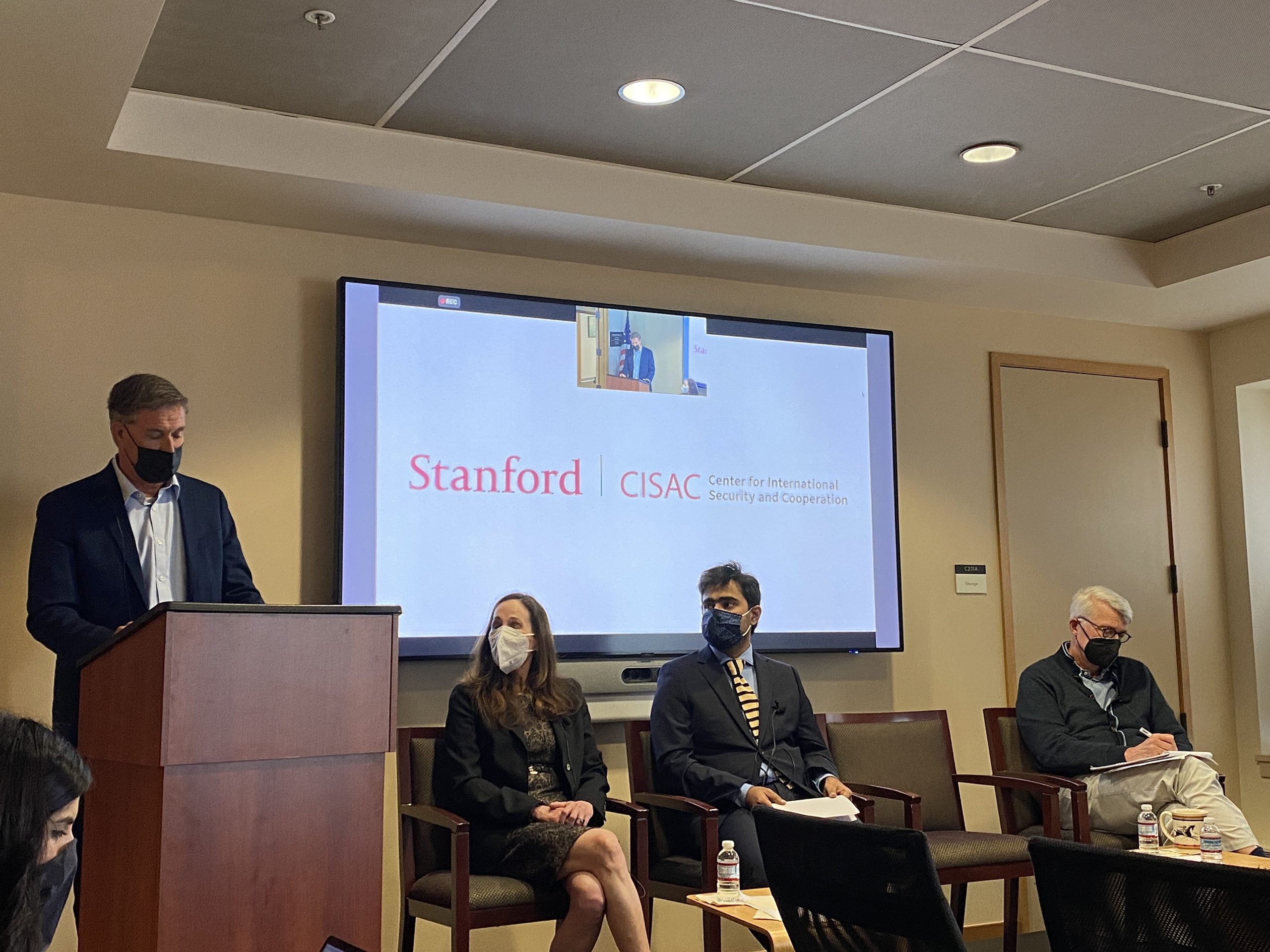Stanford policy experts offered sharp critiques of the United States’ military withdrawal from Afghanistan during a Tuesday panel. The three speakers on the panel described the late-August mass departure coordinated by American leaders as a “moral stain on the United States.”
Joe Felter, Ph.D. ’05, a Center for International Security and Cooperation (CISAC) and Hoover Institution fellow, said that the helpless confusion and ensuing casualties that occurred at Kabul Airport represent a clear ethical failure. He disapproved of how hundreds of Americans, thousands of green card holders and tens of thousands of Afghans who helped protect American lives over the past few decades were left behind.
“The decision to leave was made by President Trump and honored by President Biden, and I think it was the wrong decision,” Felter said. “We left in a way that was just unconscionable.”
Fellow panelist Asfandyar Mir ’12 M.A. ’13, a political science lecturer and CISAC affiliate, acknowledged the terrorist threats targeting civilians in the Afghanistan region and the United States, but he raised another perspective on the issue as well. “U.S. presence was also contributing to a lot of civilian harm,” Mir said. For him, the most preferred outcome would have been staying in place until a breakthrough in diplomatic relations between the United States and the Taliban occurred.
“I think the ball was dropped on diplomacy starting under the Trump administration,” Mir said. “The Biden administration was not able to energize the diplomatic process… and wanted an out as quickly as possible, which contributed to the botched withdrawal.”
Both Felter and Mir agreed that the return of Taliban control is one of the “worst possible outcomes,” as it provides the conditions for allies of the Taliban, such as Al-Qaeda, to resurge and rebuild during a time of weak oversight. Alongside recent events in Afghanistan, the panel focused on terrorism-related surveillance and defense capabilities before 9/11, currently and into the future.
“I’m going to commit an unnatural act for an academic and summarize 20 years of research into two words,” said political science professor Amy Zegart M.A. ’93 Ph.D. ’96. “Organization matters.”
Zegart said that during times of failure, constituents naturally tend to blame individual leaders. Specifically, she referenced the blame that President Joe Biden and Secretary Anthony Blinken received for Afghanistan, as well as the criticism that President George W. Bush and Central Intelligence Agency (CIA) Director George Tenet faced after 9/11. The root causes are not individuals, but deficiencies in how federal and strategic military organizations operate, she said.
During the lead-up to 9/11, intelligence organizations did not fully adapt to the end of the Cold War, Zegart said. Agencies such as the Federal Bureau of Investigation (FBI) and CIA still had the mindset of fighting a defunct Soviet adversary and did not devote enough resources to combating a changing security landscape, she added. These missteps were evident in intelligence budgets, priorities and internal communication routes.
“In 2001, Special Agents of the FBI received more time for vacation than counterterrorism training,” Zegart said. “These organizational weaknesses lead the Bureau and the CIA to miss 23 different opportunities that could have penetrated the 9/11 plot.”
Adaptation is not always so slow, however. Zegart said that agencies are now “retooled and reformed” based on more successful counterterrorism missions, such as locating Osama Bin Laden.
Zegart also discussed how the new threat landscape has also become more complex. Key dangers include emerging technologies, artificial intelligence, commercialization of satellites, internet connectivity and cyber attacks. This new digital threat has left the United States more vulnerable than most other countries — power and geography alone can no longer be relied on for protection. Zegart refers to this instance as the new “adapt or fail” moment. She said she found American intelligence communities are too stuck in the global war on terror fight to pay closer attention to the cyber era.
Attendees of the event asked the panelists if along with efforts to thwart future cyber threats, domestic terror should have a place at the forefront of national security and intelligence. Zegart affirmed the importance of measures against domestic terror, mentioning the seriousness of the Jan. 6 insurrection and its effects on the future of domestic terrorism prevention.
“Where does freedom of speech end and incitement to violence begin in an internet era where it looks like that distance between speech and action is narrowing and blurring?” she asked. “We don’t have the organizational setup to actually collaborate to better understand and deal with what is a very complex problem.”
